Joachim Löw: 10 things on Germany's World Cup-winning coach
autty 2018-05-04 19:37:02 评论
The world knows the stars on the pitch that won Germany the 2014 FIFA World Cup in Brazil, but the brains behind the remarkable triumph is still largely an unknown figure.
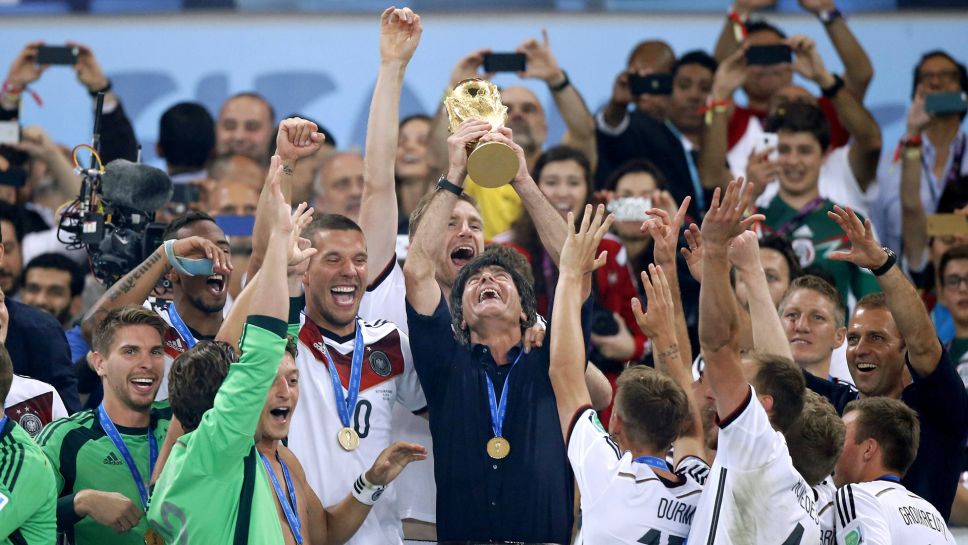
Allow bundesliga.com to provide the lowdown on Germany's greatest ever coach, and the man leading them to Russia in 2018...
1) A nose for goal
Born on 3 February 1960 as the oldest of four brothers in the town of Schönau in south-west Germany, Löw completed his school education at the age of 17 before beginning an apprenticeship as a wholesaler. With a back-up plan in the bag to appease the parents, Löw could now focus on his football career, and in 1978 he joined the region's biggest club, SC Freiburg, for the first of three spells.
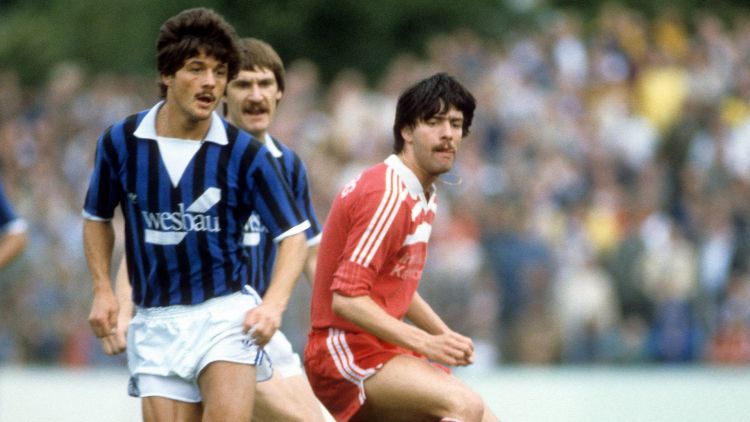
Standing at 6'0" he wasn't the biggest of strikers but he was effective, and his haul of 81 goals in 252 Bundesliga 2 outings for the Black Forest outfit still stands as a club record. In between his treble of spells with the club, Löw also had stints at Eintracht Frankfurt, VfB Stuttgart and Karlsruhe, scoring seven goals in 52 Bundesliga games before eventually hanging up his boots in 1995 and moving into coaching.
2) Wait, he won other stuff before the World Cup?
While Löw's playing career was modest by his later standards – he never played for the senior Germany national team and only earned four caps for the Under-21s – the transition to the touchline seemed to suit him. Having been appointed as Stuttgart assistant coach in 1995 he was handed the first-team reins just a year later and guided a team containing future Bayern Munich star Giovane Elber to DFB Cup glory in 1997.
Watch: Jogi Löw, Germany's goalscoring coach
The following year Löw took the side to the final of the UEFA Cup Winners' Cup, where they suffered a narrow 1-0 loss to Chelsea. He would later take charge at Turkish giants Fenerbache, Karlsruhe and Adanaspor before winning the Austrian league title in Innsbruck in 2002.
3) Part of the Germany revolution
So far, so run of the mill, right? Here is where things get interesting. When Jürgen Klinsmann was appointed as Germany head coach in 2004, he remembered Löw from the Hennes Weisweiler Coaching Academy, where they took their coaching badges at the same time some years earlier. Together, they set about changing the structure and mindset of the German game, gradually implementing a more dynamic approach that strayed from the country's typical image of a dour collective that would inevitably grind out results.
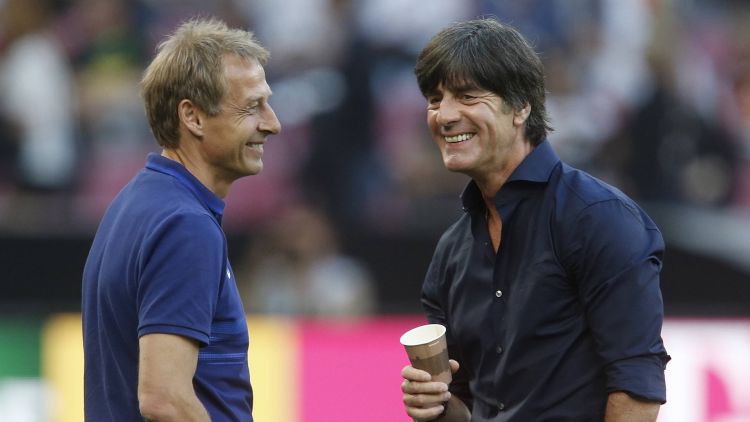
Current Germany general manager Oliver Bierhoff said of the time that Klinsmann and Löw, "introduced speed, quick passing, movement, going forward, and got the team to play the ball forwards and not, like we have in the past, sideways." And when Klinsmann stepped down in 2006, Die Mannschaft already had a ready-made replacement waiting in the wings.
4) Record breaker
Perhaps the signs were always there that Löw would achieve something special, as he was only the third person to become Germany's head coach having never represented the senior team as a player (after Otto Nerz and Erich Ribbeck). He quelled any initial doubts with a comfortable 3-0 win over Sweden in his first game in charge, and underlined his talent with three more victories in Germany's subsequent outings, becoming the country's first head coach not to concede a goal in their opening four games.
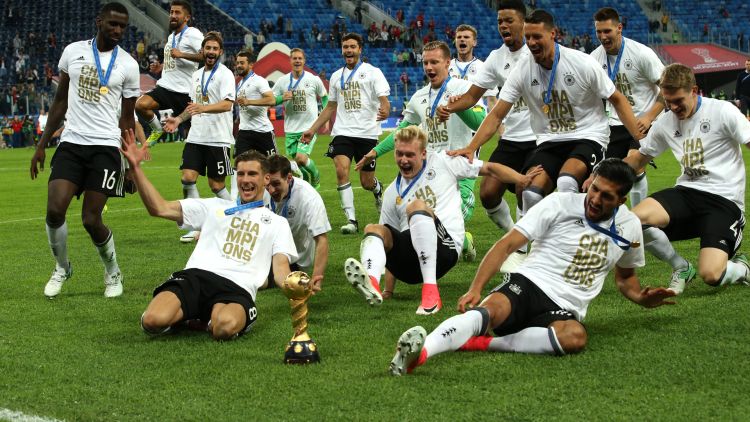
Beginner's luck, perhaps? Well, luck doesn't get you to the final of UEFA EURO 2008, or to the semi-finals of the 2010 World Cup or EURO 2012. And while Germany fell agonisingly short at those tournaments, Löw learned and moulded the experience gained into an advantage at Brazil 2014, and then followed that up with success at the 2017 Confederations Cup. Prior to this summer's tournament in Russia, his record stands at 160 games in charge, 106 wins, 30 draws and 24 defeats. In short, he is the best coach in Germany's history.
5) Football in the family
Joachim was not the only gifted footballer in the Löw household and his younger brother Markus was a defender who also played for Freiburg, with the two coinciding in the squad for the first half of the 1980/81 campaign. Speaking of family, Löw was just 17 when he met his future wife Daniela. The two tied the knot in 1986 and were married for 30 years before separating in 2016.
6) Accustomed to scaling the heights
Germany's triumph at Brazil 2014 was not the first time Löw had been on top of the world. In 2003 he climbed the summit of Mount Kilimanjaro in Tanzania, standing as the highest peak in Africa at 19,340 feet. "It was a difficult ascent over five days and in the last night I reached my limit, both physically and mentally," he recalled in an interview with the Süddeutsche Zeitung magazine. "We got to the summit at sunrise and I felt a sense of happiness; that almost anything is possible in this world."
7) Sweet (and sour) tooth
When it comes to nutrition it's a case of 'do as I say and not as I do,' for Löw, who enjoys indulging in several treats that are off-limits for his playing staff - including smoking. "I don't think anyone eats as many sweets as I do: cakes, chocolate, ice cream, desserts," he told Die Welt. "I also occasionally have one or two too many espressos." The 58-year-old went further, admitting he likes to wind down at home with "a nice plate of spaghetti and a glass of red wine while watching a good thriller. At home I want to feel in harmony; no extremes, nothing hectic."
8) His perfect Götze speech
It was the moment that defined decades of work when Andre Schürrle chipped a ball into the box for the extra-time substitute Mario Götze, who took the ball on his chest, in his stride, and fired past Sergio Romero on his left foot to send German fans into delirium. It was Götze's moment, and one that has made him a global star, but the secret soon came out on why Löw brought on the 22-year-old to "show the world" that he's "better than Messi".
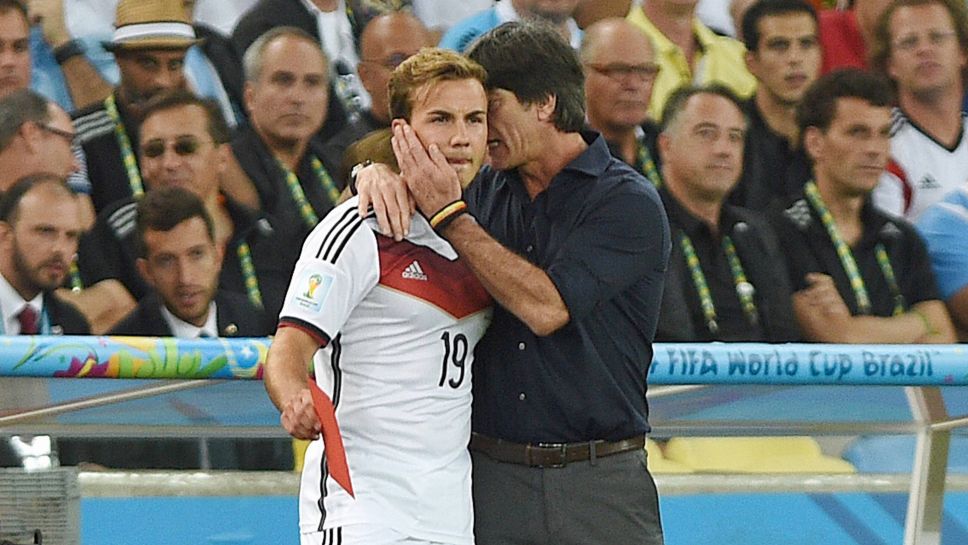
It was the short word Löw had in Götze's ear that may have made all the difference in the final against Argentina.
"I said to Götze, 'show the world you're better than Messi and you can decide the game," revealed Germany's coach after the final in Rio de Janeiro. And it worked, as Götze scored to win the game.
9) Special "Poldi"
Speakers of German will be well aware of the pitfalls in social etiquette that come with deciding whether to address someone with the more formal "Sie" or the informal "du".
While it is customary for older people, or those in a position of seniority, to invite somebody else to use "du" – as Bayern Munich coach Jupp Heynckes recently did with his Hoffenheim counterpart Julian Nagelsmann – former Cologne and Bayern striker Lukas Podolski took matters into his own hands right from the off and is the only player to use the informal address with Löw.
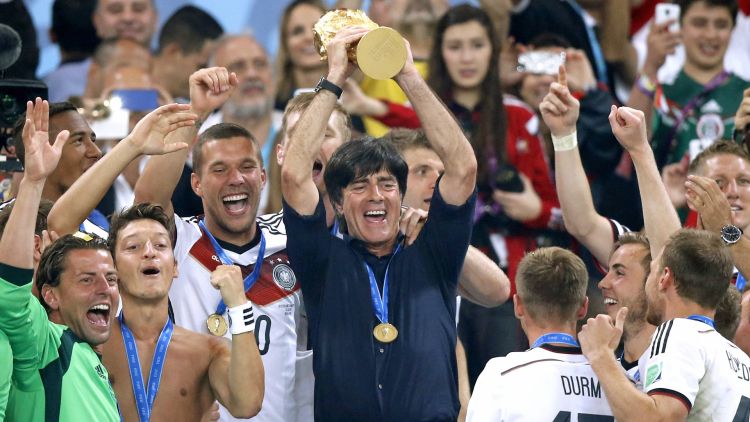
"He calls me 'du'," Löw said in an interview with Zeit magazine. "It just kind of happened automatically with him when I was assistant coach under Klinsmann. I haven't explicitly given permission to anyone."
10) Socially active
Löw is very conscious of his high-profile status and has quietly set about putting it to good use for the benefit of worthy causes. He has been vice president of 'Stiftung Jugendfussball' since 2002, a foundation that supports social projects involving football around the world.
He supported the 'We help Africa' initiative ahead of the 2010 World Cup in South Africa and he is involved with Plan International, an organisation that helps disadvantaged children across the globe. It is through the latter institution that he has sponsored a boy and a girl in Ghana since 2010.
- 消息参考来源: BUNDESLIGA
- 严禁商业机构或公司转载,违者必究;球迷转载请注明来源“懂球帝”
- 懂球帝社区规范:抵制辱骂

